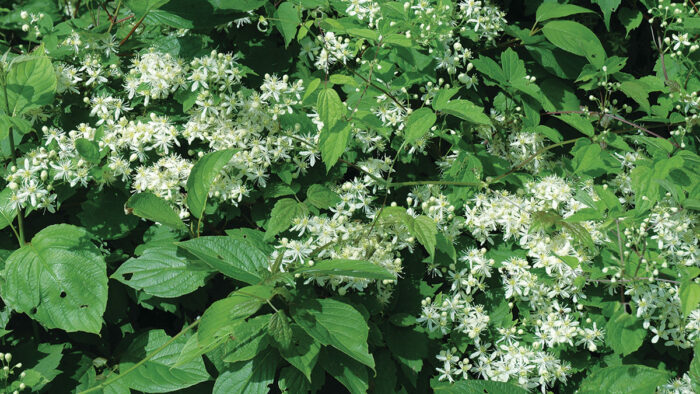
1. Virgin’s Bower
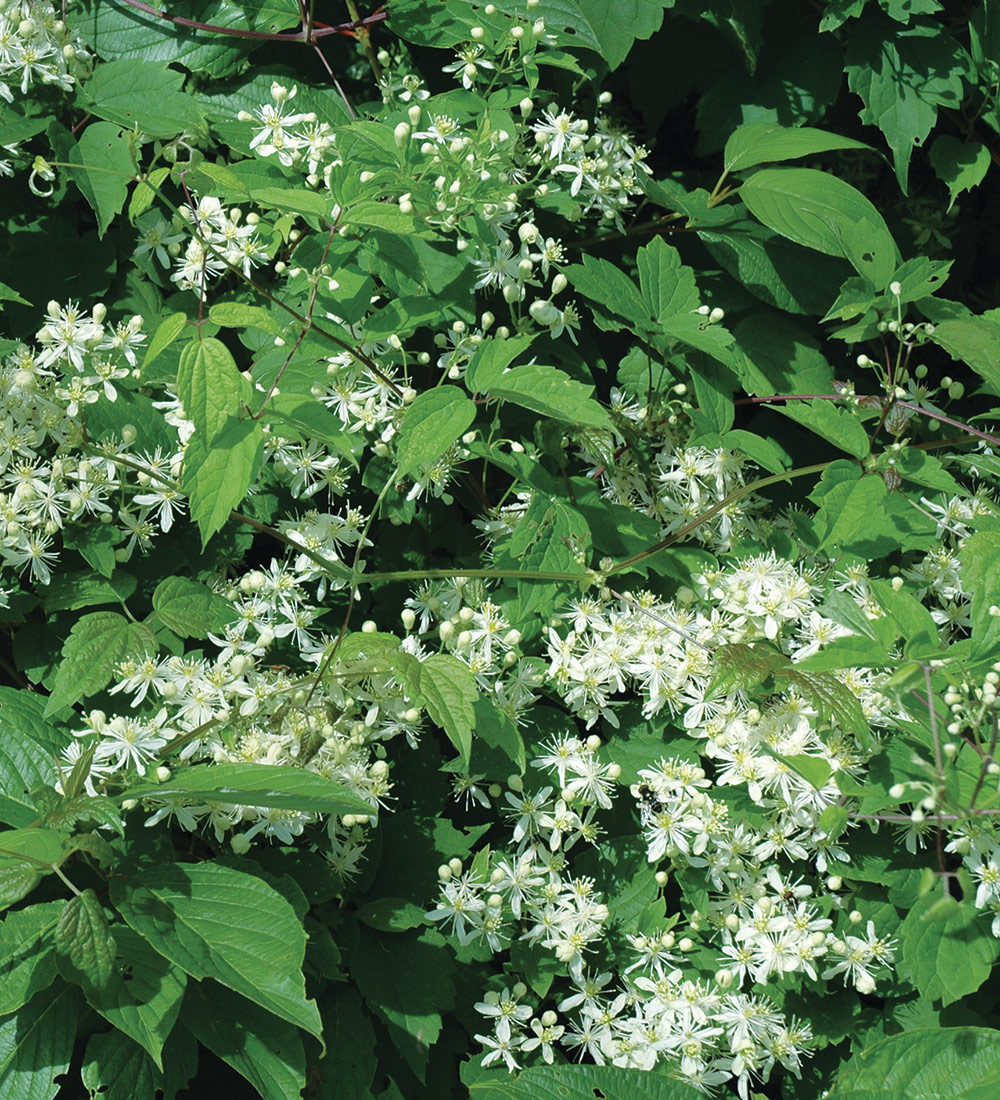
Name: Clematis virginiana
Zones: 3–8
Size: 12 to 20 feet tall and 3 to 6 feet wide
Conditions: Full sun to full shade; average to wet, well-drained soil
Native range: Eastern North America
Virgin’s bower is a native woody perennial vine. It has many common names—including woodbine, old man’s beard, and devil’s darning needles—but “sweet autumn clematis” (C. terniflora, Zones 4–9) isn’t one of them. That’s a more aggressive, invasive plant originating from Japan and often confused with our native vine, even at garden centers. Virgin’s bower is a strong climber that will bloom in virtually any light conditions. Its fall flowers are white, fragrant, plentiful, and unappealing to deer and rabbits. In fact, the leaves are toxic to humans and animals when ingested and can occasionally cause contact dermatitis, so wear your gloves when handling them. Virgin’s bower can get large and may be cut back hard each year for a more manageable size.
2. Pretty Sedge
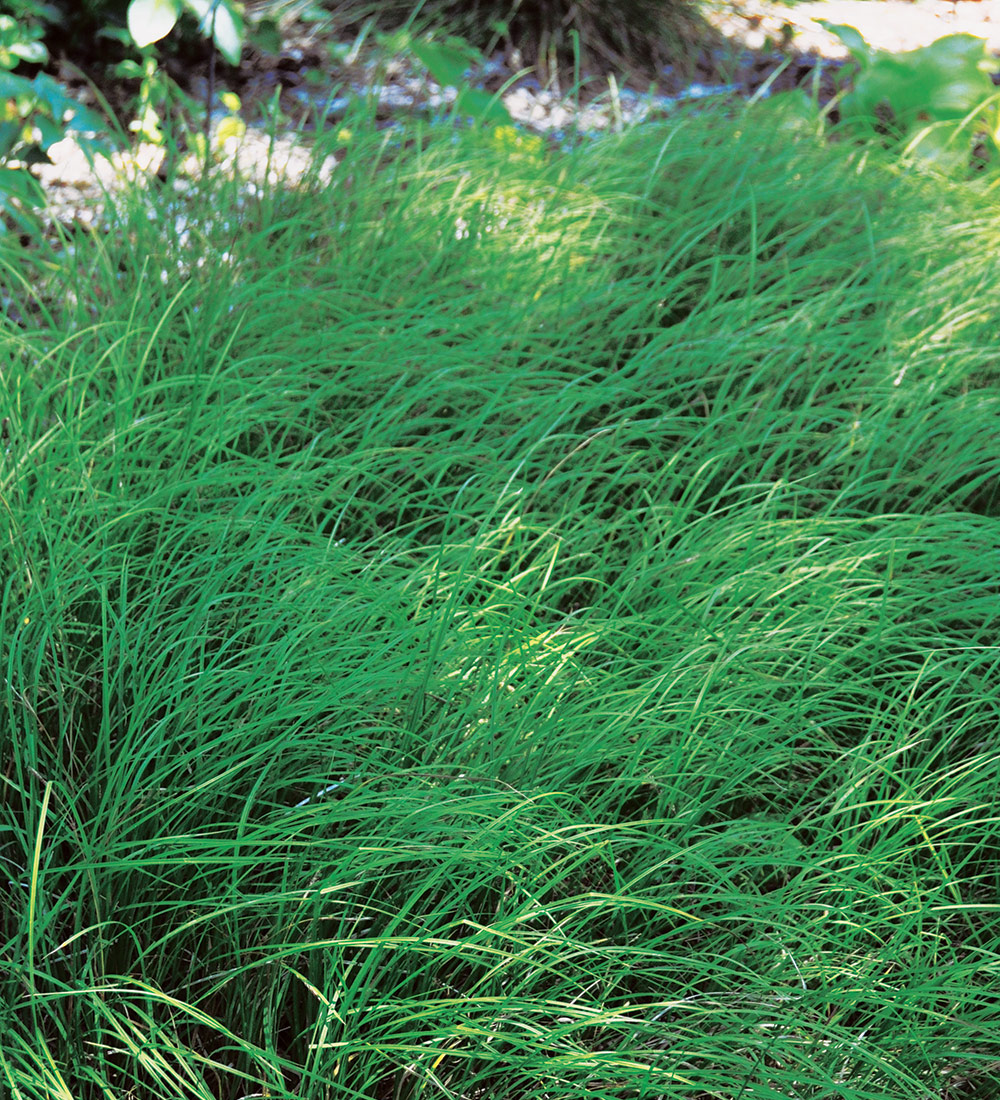
Name: Carex woodii
Zones: 4–8
Size: 12 to 14 inches tall and spreading 3 to 4 feet
Conditions: Full sun to full shade; average to moist, well-drained soil
Native range: Eastern and midwestern North America
Carex is one of the most useful genera of plants for gardens, and pretty sedge is one of the easiest species to incorporate. This plant has medium-green foliage, a tidy size with a spreading habit, and deer and pest resistance. A great North American–native alternative to lilyturf (Liriope spicata, Zones 4–10), pretty sedge has exploded in popularity since being named in Mt. Cuba Center’s 2023 “Carex for the Mid-Atlantic Region” report as one of the best sedges for lawn replacement. When you find it, grab it, because growers can’t keep up with demand. Try planting a nice wave of pretty sedge in front of some ‘Hot Lips’ turtlehead for a stellar combination. While this perennial likes moist soil, it is drought tolerant once established.
3. ‘Hot Lips’ Turtlehead
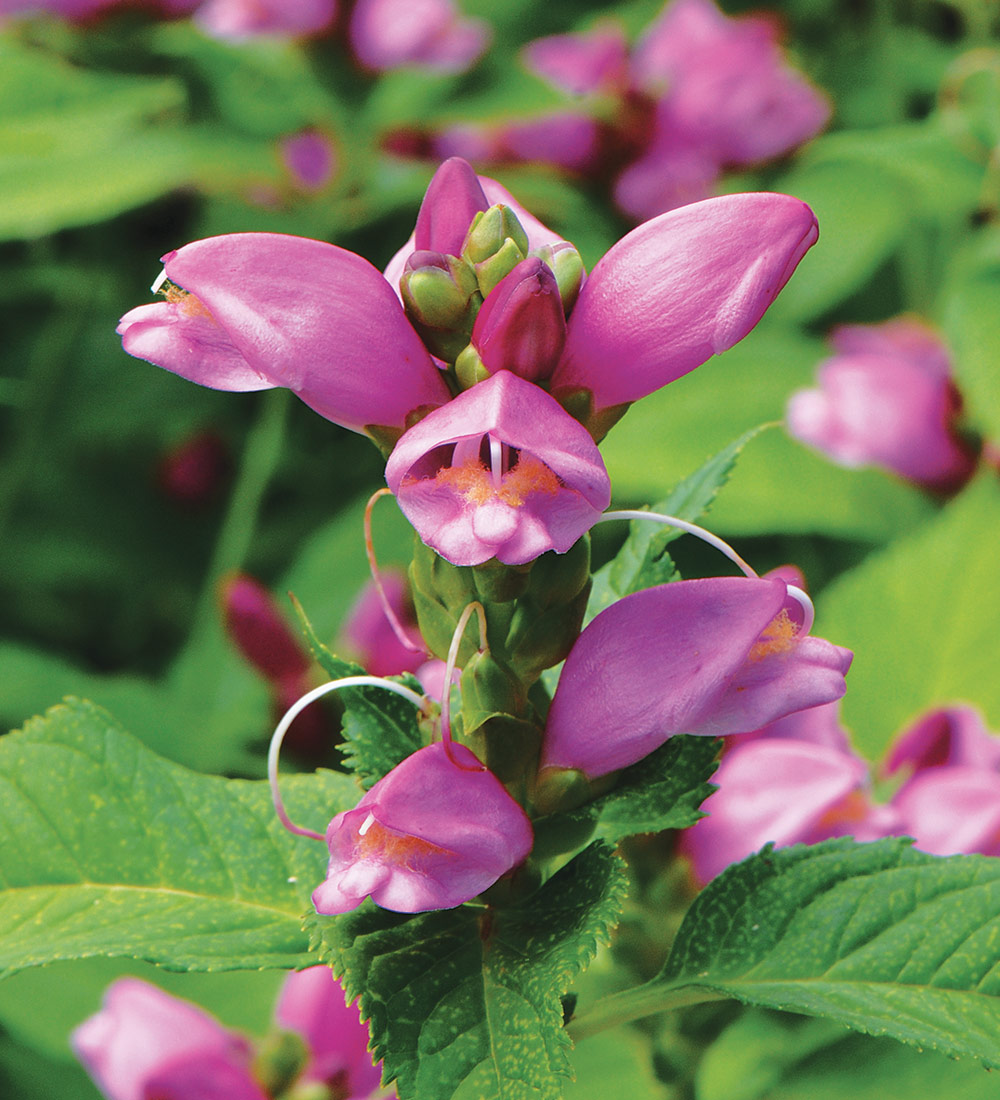
Name: Chelone lyonii ‘Hot Lips’
Zones: 4–8
Size: 2 to 4 feet tall and 1 to 2½ feet wide
Conditions: Full sun to full shade; average to wet soil
Native range: Southeastern United States
Just when the garden is starting to look tired in late summer, the unique pink blooms of ‘Hot Lips’ turtlehead appear. These flowers can last into fall. This plant is not as well known as some other fall standards, so people often stop to ask, “What is that?” With upright stems, shiny, medium-green foliage, strong pink petals, and great deer resistance, ‘Hot Lips’ is especially impactful when planted en masse. That’s a good thing, since it spreads slowly by rhizomes. In shade, plant it densely or pinch it back to promote fullness and to prevent flopping. This perennial takes acidic to neutral soil pH, and I’ve found that it’s very happy in the clay soil of the D.C. metro area.
4. Inkberry
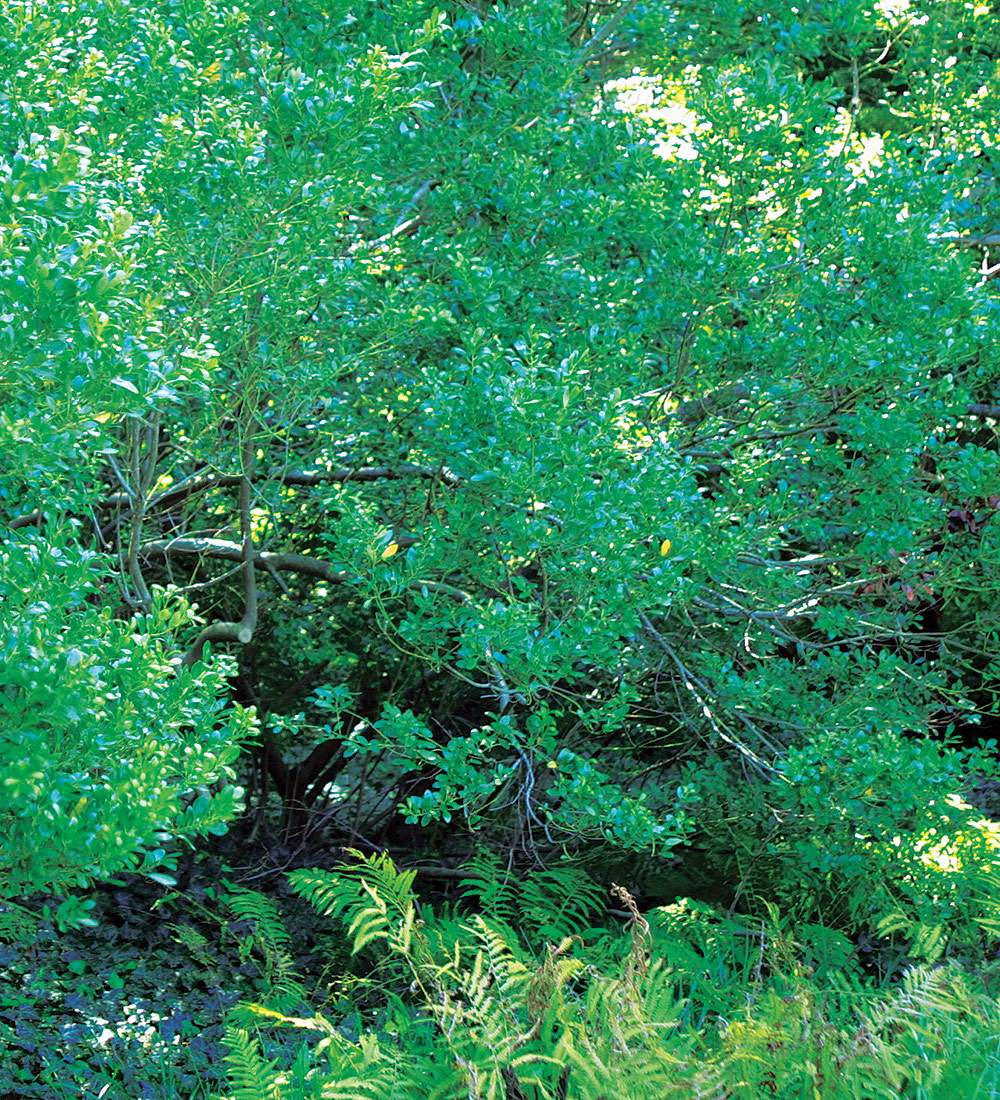
Name: Ilex glabra
Zones: 4–9
Size: 5 to 10 feet tall and wide
Conditions: Full sun to partial shade; average to wet soil
Native range: Eastern North America
Inkberry is one of our few North American broadleaf evergreen shrubs. Highly adaptable to various soil, light, and moisture conditions, it’s widely used in contemporary landscapes despite a frustrating propensity to sometimes defoliate along the lower third of its branches. It’s best at the back of a border, where its deep green, glossy leaves contrast with foreground plants, which will cover its legs if they decide to go bare. This shrub can achieve a nice, full shape with some pruning. In early spring, cut back a third of the branches to their point of origin, or cut the whole shrub down to about 18 inches for complete rejuvenation. Inkberry can grow in full shade, but it will be leggy, so it is best in full sun to partial shade.
Maureen Robinson is president of the Washington, D.C., Maryland, and Virginia chapter of the Association of Professional Landscape Designers (APLD).
Fine Gardening Recommended Products
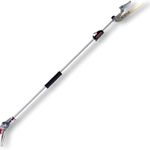
ARS Telescoping Long Reach Pruner
Fine Gardening receives a commission for items purchased through links on this site, including Amazon Associates and other affiliate advertising programs.
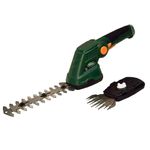
Scotts Cordless Grass-Shear/Shrub-Trimmer Combo
Fine Gardening receives a commission for items purchased through links on this site, including Amazon Associates and other affiliate advertising programs.
- 13.5 x 3 x 5 inches
- Uses a 7.2-Volt 2Ah high-capacity built-in lithium-ion battery; Includes a fast charger
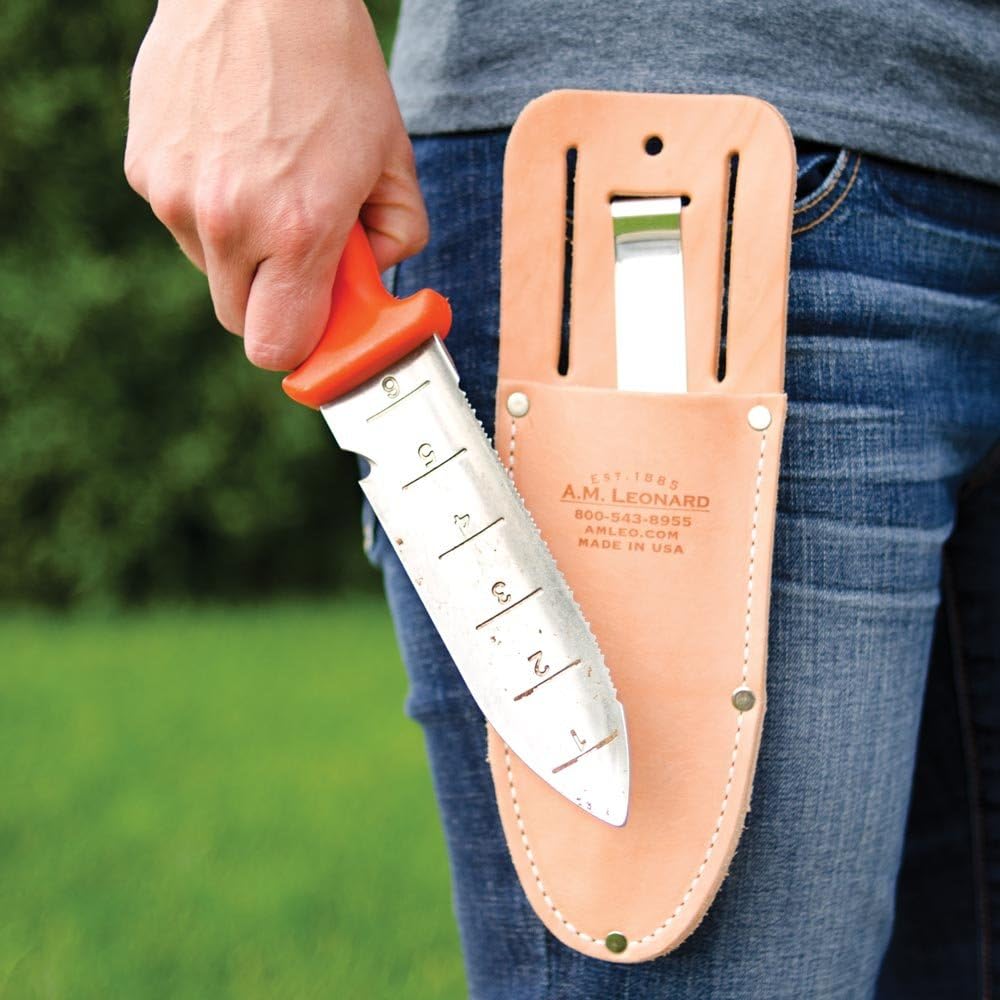
A.M. Leonard Deluxe Soil Knife & Leather Sheath Combo
Fine Gardening receives a commission for items purchased through links on this site, including Amazon Associates and other affiliate advertising programs.






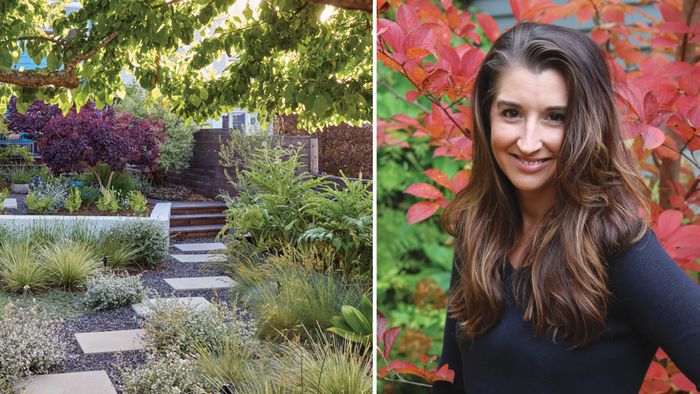
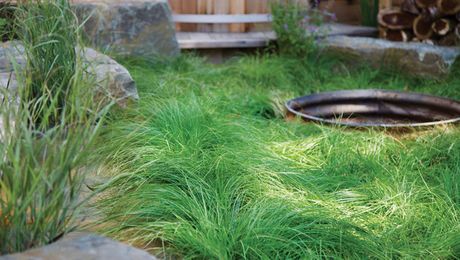
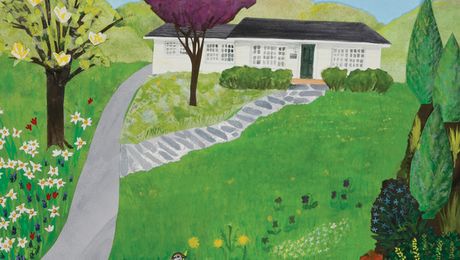











Comments
Log in or create an account to post a comment.
Sign up Log in